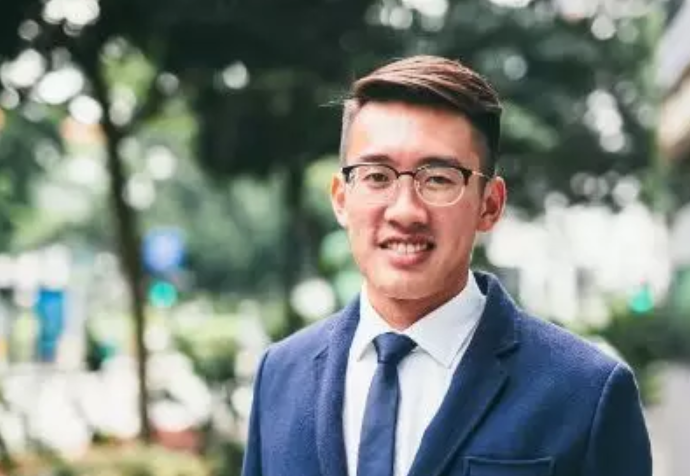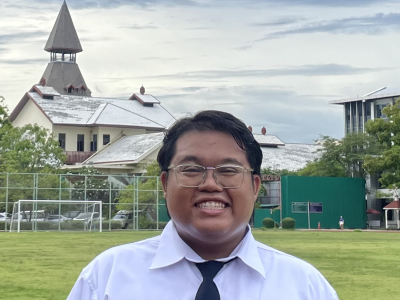
Education is one of the most important factors that influence a person’s resources and experiences, and we want to share experiences of the up-and-coming generation professionals in Singapore. In this regard, our team at ValuePenguin has been preparing a series of Q&A interviews featuring top students at different universities in Singapore.
This interview is with Lee Kai Yang, an Accountancy student seeking his bachelor’s degree at SMU, expecting to graduate in 2019. We recently spoke with him and asked him about his experience within his programme and what he’s planning to do with his professional future.
What influenced you to pursue a degree in accounting? What excites you intellectually?
I can’t honestly say that I knew that accountancy was my destined field when I first applied for my university courses back in 2013. Since I was young, I had a strong aptitude towards numbers, logic and systems, which led to my strong performance in both maths and sciences. Back in 2013, my understanding of accountancy couldn’t even scratch the surface of this profession, but I reckoned that my strengths aligned well with this profession. Having studied accounting for over a year now, I am lucky to say my intuition proved to be pretty accurate, thankfully.
The thing about me and my learning style is that I was never one for rote learning; I could never memorise a fact just because someone said so. Over the years, I realised I learnt best when I could understand the big picture of how things linked together and why certain things are important, i.e. what people call “conceptual learning.” I get this ineffable joy when I’m able to connect all the dots of a certain concept and hit this ‘eureka moment’ where it all seems clear. That is a truly exciting feeling.
What has your experience in the programme been like at SMU?
SMU in my opinion is really a unique place to be in. As cliché as it may seem it really is a different university from the rest. As a result, its students also do not conform to any norms. I find myself meeting peers from a myriad of backgrounds with different stories and different interests. For me, it’s competing in water polo, for others it may be dance or music. The best part about it all is the fact that SMU lets us pursue our unique interests while balancing our studies. Here at SMU, I don’t feel obliged to do what I don’t want to do and I don’t feel restrained from doing what I want to do.
Were there other schools you were considering, and if so, why did you choose this one?
When I was choosing from different universities, there were some practical considerations like costs, travel, availability and rankings of courses. Then, there were other considerations like school culture. For me, SMU ticked most of the boxes.
The thing that struck me most SMU is how its students were quietly confident. I could sense their pride when I spoke to seniors from SMU. They were proud but humble, and that culture resonated with me. I liked how they were uniquely individual about their identity yet grounded by the same foundation of pride, humility and professionalism. After entering the university, my intuition proved to be true, and I found my own space in the university very quickly.
What is your favourite class so far, and why?
My favourite class so far would have to be my Management Accounting module. Sadly, it wasn’t my best performing module, but it definitely was the most intellectually rewarding one. SMU’s management accounting module taught me how to understand a company from a numbers, logic and systems stand point, and gave me many insights into how a company starts, how a company operates and how a company may crash if it isn’t run properly.
What conversations excite you?
I like debating ideas and points of contentions with my friends regarding many different issues we face day to day as a society, school or individual. I never like to take things at face value, so if someone tells me something, whose logic I do not understand, I will remain unconvinced and counter with my own reasoning and argument. However, this also means that when I hang out with friends our conversations hardly have an end point and we end up conversing for hours.
How do you challenge yourself to do well in your university life?
Most of my motivation to do well in university is intrinsic. By nature, I am highly competitive, especially in sports like water polo. This competitiveness has become second-nature to me, and applies to my academia too. However, the difference between sports and academia is that in study my competition is myself, not my peers. I would like to believe that I am highly cognizant of my own abilities and potential, and because of that I always set a certain expectation for myself when it comes to my studies. Being confident of my abilities, I always stretch these expectations and push myself to reach those targets. As long as I am satisfied with my performance, I consider it a job well done, regardless of how I fair against my peers.
Based on the general education classes you take (and what you hear from your peers in other majors), what is unique about the nature of your major’s classes?
Attention to detail. The accounting profession is a black and white profession in a very grey business world. Therefore, the profession has grown to become obsessive about precision and detail. I often see friends from other majors who take accounting modules complaining about the level of specificity required in these classes.
What has been the most challenging aspect of this area of study, and was this something you had originally anticipated? Is there anything you wish you had known about this major ahead of time before choosing this career path or anything else you would like to share?
The most challenging aspect would be applying in-classroom learnings in the real world. I think it is something that most people generally anticipate, but I definitely didn’t expect it to be so challenging. Of course on hindsight, we always have many revelations and clarity about our decisions before. However most of these revelations and clarity can’t really be explained. Even if it could be explained, you wouldn’t understand the true meaning behind it until you’ve actually experienced it. I guess all I can say is to go into all your decisions with an open mind, hope for the best, but always prepare for the worst.
What are the best ways to network with your peers within your major? Clubs, study groups, online communities, etc.?
To me there is no best way to network with your peers, it’s just about seizing opportunities. Thankfully for my peers and myself here in SMU we have a ton of opportunities to network, from class projects to community service projects, from alumni networking sessions to industry networking sessions, from school-wide camps to club-organised camps; the list just goes on. I guess the most important thing is to be genuine and friendly, don’t treat one another as just a contact but as a friend you can count on.
Have you participated in any internships? If so, how many, how were they, and did you find the school’s resources to be helpful in helping you find this opportunity? If not, when will you apply for internships, and what is that process like?
I was fortunate enough to be given an opportunity to intern in Deloitte Singapore as a Summer Audit Intern. I was the recipient of the Deloitte Inspire Award for 2016 and part of the perks was an internship. In fact, this opportunity was directly because of SMU and their high level of collaboration with industry leaders around the region. It is not just Deloitte Singapore but many other companies as well. I spent 10 weeks at Deloitte and got to see the good, bad, pretty and ugly side of the corporate world. Internships are as close as you get to actually being hired and is something everyone should do before graduation.
What are your future career plans and aspirations? What is your motivation in life?
Family, Friends and Fun: to do right by family and friends and have fun doing so is my main goal right now. As long as my plans and aspirations align with that, it doesn’t matter much to me what the details are. I don’t have a solid plan prepared, but right now it seems likely that I will work and get myself certified as a Chartered Accountant of Singapore. From there I will see what other doors may open for me.
What is the best piece of advice related to your field of study that you have received?
“Be prepared to fail, we all do the first time.”
What advice would you give someone else trying to break into this field?
Talk to as many people already in the field to better understand what your future will be. There is no such thing as too much understanding. The more you know the better.
How are you financing your education, and what are your most helpful online resources or tools?
Thankfully for me, my parents are able financially and have kindly sponsored my education since I was young. I can never repay fully what my parents has done for me over the years but I will never stop giving back. Furthermore, Singapore has many scholarships, bursaries and awards you can apply for and help lessen the financial burden of higher education. I have been fortunate enough to receive some of these bursaries and awards to help my parents along the way. SMU also offers scholarships which can be found on the university website.
What resources or information would you like to help you think about your career that you’re not currently getting?
SMU actually provides really extensive career help and advice. We have a whole career centre dedicated to that, and the resources and information available there are so wide and diverse that it covers all my current concerns.
Do you have favourite books that have informed your outlook as an aspiring professional or leader? If so, please name them and describe why they are important to you…
What I actually love to do is watch videos online. You could say that it is the new age version of reading. I love watching speeches by revolutionary minds, from politicians like Lee Kuan Yew and Barrack Obama, to athletes like Jeremy Lin and Richie McCaw, and also your usual tech giants like Steve Jobs and Bill Gates. They provide wisdom that has been distilled through years of trial and error into succinct speeches orated for all to digest.
My other favourite category of videos are documentaries. Planet Earth II especially is a must-watch. I don’t care what you study or what you intend to do in the future. We all live on this one planet. If you don’t already know how awesome yet fragile our one planet is, this documentary will help you realise that and perhaps lead you to make decisions in the future as a professional or a leader that will bear the planet in mind.

